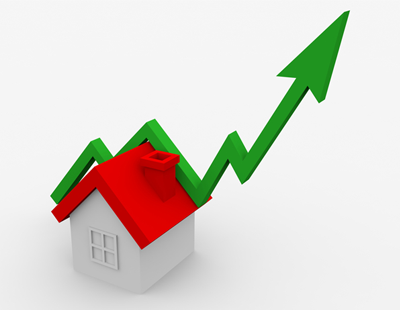
Annual house price growth accelerated to 12.6 per cent in February, up from 11.2 per cent in January and the strongest pace since June last year, according to the Nationwide.
Its latest index shows that house prices rose by 1.7 per cent month-on-month, after taking account of seasonal effects, the seventh consecutive monthly increase.
“The price of a typical home rose above £260,000 for the first time in February, an increase of £29,162 over the past 12 months. This is the largest ever annual increase in cash terms since the start of our monthly index in 1991. The price of a typical home is now £44,138 or 20 per cent higher than in February 2020 - the month before the pandemic struck the UK” explains Nationwide chief economist Robert Gardner.
“Housing market activity has remained robust in recent months, with mortgage approvals continuing to run above pre-pandemic levels at the start of the year. A combination of robust demand and limited stock of homes on the market has kept upward pressure on prices.
“The continued buoyancy of the housing market is a little surprising, given the mounting pressure on household budgets from rising inflation, which reached a 30-year high of 5.5 per cent in January, and since borrowing costs have started to move up from all-time lows in recent months.
“The strength is particularly noteworthy since the squeeze on household incomes has led to a significant weakening of consumer confidence. Indeed, consumers’ view of the general economic outlook and prospects for their own financial circumstances over the next 12 months have plunged towards levels prevailing at the start of the pandemic.”
But Gardner cautions that the economic outlook is particularly uncertain at present and it is likely that the housing market will slow in the quarters ahead with inflation expected to rise above seven per cent in the coming months.
He continues: “Indeed, there is scope for inflation to rise even further as events in Ukraine threaten to send global energy prices even higher. Assuming that labour market conditions remain strong, the Bank of England is also likely to raise interest rates, which will exert a further drag on the market if this feeds through to mortgage rates.
“Housing affordability has already become more stretched, in part because house price growth has been outstripping earnings growth by a wide margin since the pandemic struck. The price of a typical home is now equivalent to 6.7 times average earnings, up from 5.8 in 2019.”
We're excited to announce that we're working on building a shiny new website for readers of Landlord Today! As part of this process, commenting on articles will be temporarily disabled. We look forward to sharing our new and improved Landlord Today website with you shortly!








.png)
.png)

(1).png)







.jpg)






%20(002).png)





